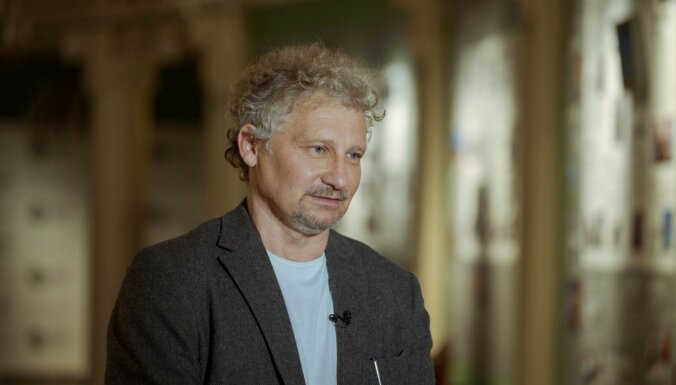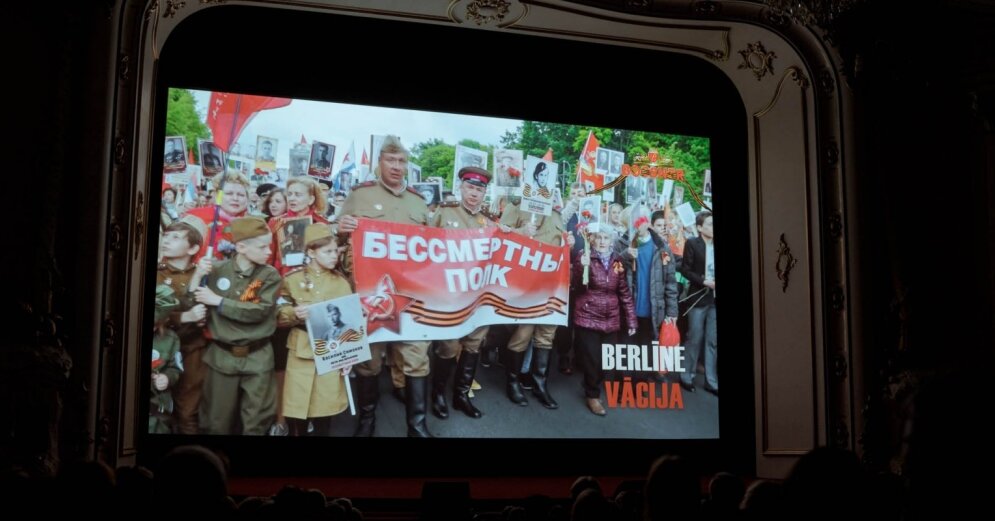On Monday, August 23, the new documentary “Homo Sovieticus” premiered at the Splendid Palace cinema.
–
–
Content will continue after the ad
Advertising
–
The new full-length documentary by director Ivo Briežis, made at the Mistrus Media film studio, tells the story of a Soviet man 30 years after the collapse of the USSR and is a Soviet film study conducted in Latvia, Armenia, the Czech Republic, Russia, Poland and Germany. Thirty years after the collapse of the USSR, the director, together with screenwriter Rita Rududu, meets her peers in the former Soviet Union, who were young at the time of the collapse of the USSR and perceived this historic moment as a scenario of their lives. With the collapse of the Soviet empire in 1991, young people from the USSR republics were invited to the central television of the time to discuss, under Vladimir Pozner, whether or not to be in the Soviet Union. Some of the participants in this historical show are the heroes of the film “Homo Sovieticus”. The authors also meet Lev Gudkov, a “research man” researcher in Moscow, Anni Aplbaum, an American researcher in Poland, and Boris Ritzchuster, a publicist, in Berlin, and discuss the cause of the “Soviet man” in the context of their families.
The phenomenon of the “Soviet man” has now become a kind of virus that allows many to escape and take refuge in the past, and Soviet arguments are now used to shape policy and build new totalitarian masses. It has been 30 years since the collapse of the USSR, the political generation has changed, but the identity of the “Soviet man” has not been preserved, but continues to spread. “It was important for us that the film reaches the audience this week, 30 years after the USSR coup. We are pleased that it is this kind of social and political documentary that can reach a wide audience and provide an opportunity to look at current processes in a different way,” one said. from film producers Gints Grūbe.
The film “Homo Sovieticus” is a joint production of the Latvian film studio “Mistrus Media” (producers Gints Grūbe, Elīna Gediņa-Ducena), the Lithuanian film studio “Monoklis” (producer Jurga Gluskiniene) and the Czech film studio Frame Films (producer Jitka Kotrlova). The main cameraman is Mārtiņš Jurevics, editing directors – Tomāšs Elšīks (Czech Republic) and Toms Krauklis, music author – composer Martins Bjalobžeskis (Lithuania).

–
The film has already been screened at the international human rights documentary film festival “One World” in Prague and will be screened at the international film festival “Astra Film” in Romania in September. The English-language screening of the film will take place at the Splendid Palace cinema on September 7 at Artdocfest, followed by a conversation with the filmmakers.
“The film is an archetypal story about forty years or two generations destined to nostalgically err in their memories of slavery, because only for the third generation, which no longer carries the captive gene, freedom is a self-evident, albeit difficult, situation. Homo Sovieticus is alive in me because most of his life has passed in the council, “says Sandra Kalniete, a member of the European Parliament, after watching the film.
“Although the film sometimes looks like a” Western viewer “and tries to tell the traumatic stories of post-Soviet people, it is no less important to ourselves – helping to diagnose and perhaps even fight the rudiments of Soviet thinking that we continue to feel in and around ourselves.” the film is expressed by philosopher and publicist Ilmārs Šlāpins.
From August 24, the film will be shown in “Splendid Palace”, “Kino Bize” and “K Suns”. The meeting with the filmmakers will take place on August 26 at Kino Bize, on August 31 and September 13 at Splendid Palace.
–


